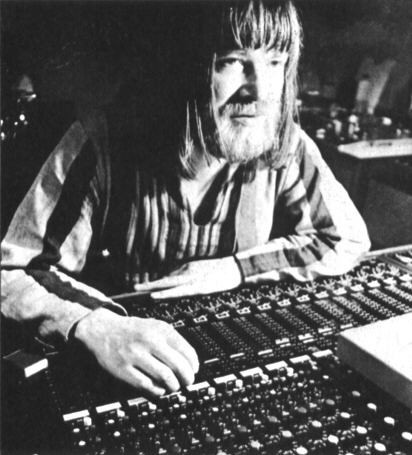In the heart of Wolperath, Germany, on the outskirts of Cologne, stood a recording studio that revolutionized the landscape of experimental and electronic music. Conny's Tonstudio, founded in 1974 by the visionary producer Conny Plank and his partner Christa Fast, quickly became a mecca for musicians seeking innovative and unique soundscapes.
Plank, known for his experimental approach and technical prowess, created an environment where artists could push boundaries and explore new sonic territories. The studio, equipped with state-of-the-art equipment and custom-built instruments, became a playground for experimentation and creative expression.
Conny's Tonstudio played a pivotal role in the development of Krautrock, a genre characterized by its psychedelic, progressive, and experimental nature. Bands such as Kraftwerk, Neu!, Cluster, Harmonia, and Ash Ra Tempel flocked to the studio to craft their groundbreaking albums. The studio's unique atmosphere and technical capabilities allowed these artists to create sounds that were both challenging and captivating.
Some of the iconic albums recorded at Conny's Tonstudio include:
Kraftwerk - Autobahn (1974):
This seminal album, with its hypnotic rhythms and electronic soundscapes, marked a turning point in electronic music. It solidified Kraftwerk's position as pioneers of the genre and showcased the innovative potential of Conny's Tonstudio.
Neu! - Neu! '75 (1975):
This album, with its minimalist approach and driving rhythms, is considered a masterpiece of Krautrock. It exemplified the experimental spirit of Conny's Tonstudio and its ability to foster groundbreaking music.
Conny's Tonstudio also attracted international artists like Brian Eno and Eurythmics, who were drawn to Plank's reputation for innovation and sonic exploration. The studio's influence extended beyond Germany, shaping the sound of electronic and experimental music worldwide.
After Conny Plank's untimely death in 1987, the studio closed its doors. However, its legacy lives on. Conny's Tonstudio remains a legendary landmark in music history, revered for its contributions to the development of electronic and experimental music. It stands as a testament to the power of creativity, innovation, and the transformative potential of music.
